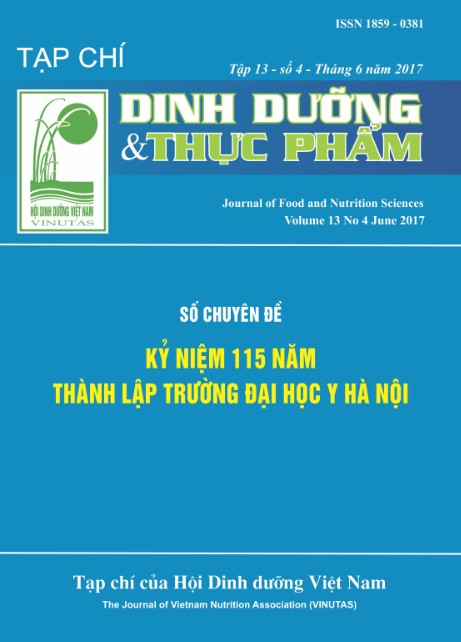EFFECTS OF NUTRITION THERAPY ON DYSLIPIDEMIA IN A PATIENT WITH DIABETES MELITUS AND HIGH LIVER ENZYMES
Main Article Content
Abstract
We report a case of dyslipidemia in a patient with diabetes mellitus, particularly hypertriglyceridemia, can elevate the risk of acute pancreatitis to patients. As the patient's liver enzymes are on the rise, patients are at increased risk of hepatocellular injury when using antihyper-lipidemia drugs. Therefore, in this case the nutrition therapy is the selected for treating the dyslipidemia. Nutrition therapy was personalized and designed based on eating habits, medical conditions and treatment regimens. The main principle is to limit starch and not to use alcohol. Energy should be gradually reduced in the diet so that the patient can adapt. The results indicated that the lipidemia of the patient was gradually controlled, triglycerides reduced but did not return to normal range; liver enzymes returned to normal; blood glucose was well controlled and patient reduced 5kg at discharge. The patient continued to be advised to implement treatment regimen when being discharged from the hospital as well as in follow-up visits. After 8 months of treatment regimen: lipid components, liver enzymes reached normal range and blood glucose was well controlled.
Keywords
Dyslipidemia, triglyceride, nutrition therapy, diabetes mellitus, high liver enzymes
Article Details
References
2. American Diabetes Association (2014). "Clinical Practice Recommendations", Diabetes Care, 35 Suppl 1.
3. Bộ Y tế (2015). Hướng dẫn điều trị dinh dưỡng lâm sàng, NXB Y học.
4. Tạ Văn Bình (2006). Bệnh đái tháo đường– tăng glucose máu, Nxb Y học, tr.11-69.
5. Hans H. (2010). “Obesity and Diabetes”, Textbook of Diabetes, 4th edition, Blackwell, pp.227-244.
6. Susan G. Dudek (1997). Nutrition Handbook for Nursing Practice, 3th edition, Lippincott, the USA.


